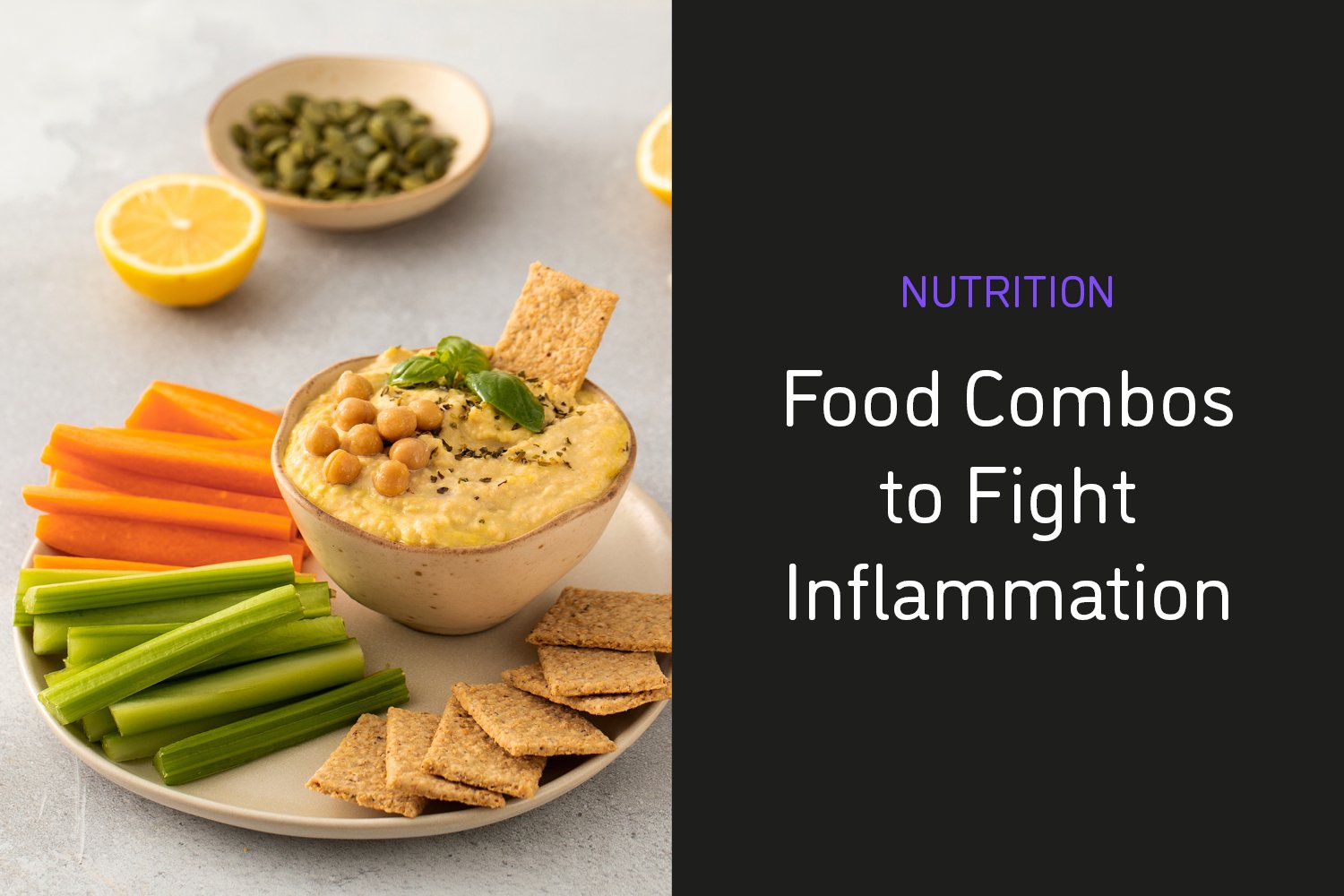New Patient Chiropractic Consult

Inflammation often gets a bad reputation, but the truth is that it’s both good and bad. Short-term inflammation is a natural response to injury or infection. However, ongoing low-grade inflammation can contribute to many common health issues.
From joint discomfort and tiredness to more complex long-term conditions, you’ll find that chronic inflammation is involved somewhere. Fortunately, what you eat can help reduce this internal stress and support better health.
Certain foods contain natural compounds that help reduce inflammation in the body. These include:
Adding these foods to your weekly meals can help reduce inflammatory responses and support your body’s natural recovery.
Pairing anti-inflammatory foods can increase their overall effect. For example, turmeric is far more effective when eaten with black pepper, as the piperine in pepper improves the absorption of curcumin.
A combination of fatty fish and leafy greens brings together Omega-3 fats and antioxidants, which may support reduced inflammation throughout the body. A simple dish of salmon with steamed kale is a practical example.
Berries with live-culture Greek yoghurt offer both antioxidants and beneficial bacteria for gut health. This combination supports the immune system and contributes to reduced inflammation.
Broccoli and tomatoes, when eaten together, have been linked in some studies to reduced inflammatory responses, especially in those with joint conditions. Similarly, pairing avocado with a cup of green tea provides beneficial fats and plant compounds that may help reduce oxidative stress.
These combinations make it easier to enjoy a wide variety of anti-inflammatory nutrients throughout the day.
Some common kitchen ingredients may worsen inflammation if eaten frequently. Refined sugars, often present in sweets, biscuits, soft drinks, and processed foods, can trigger inflammatory pathways.
Refined carbohydrates like white bread, pasta, and rice may have similar effects, especially when not balanced with protein or fibre. Processed meats such as bacon, sausages, and deli slices are also linked with increased inflammation markers.
Vegetable oils high in Omega-6 fatty acids, like corn or soya bean oil, may disrupt the balance of fats in the body if eaten in large quantities without enough Omega-3s.
Although less common now, trans fats found in some fried or packaged foods can also contribute to inflammatory changes and should be avoided where possible.
Making anti-inflammatory meals doesn’t need to be complicated. For breakfast, try scrambled eggs with spinach and avocado slices. Greek yoghurt with berries, chia seeds, and a pinch of turmeric and pepper is another good option.
At lunchtime, consider a large salad with grilled salmon or chickpeas, mixed greens, broccoli florets, cherry tomatoes, and an olive oil-based dressing. For dinner, turmeric-spiced lentil soup pairs well with a side of sautéed kale. Alternatively, try baked cod with roasted broccoli and sweet potato.
Snacks can include a handful of walnuts and blueberries, apple slices with almond butter, or vegetable sticks with hummus.
Focusing on nutrient-rich foods and mindful combinations can ease chronic inflammation. These simple, consistent choices support your body’s ability to heal, promoting better recovery and long-term well-being.